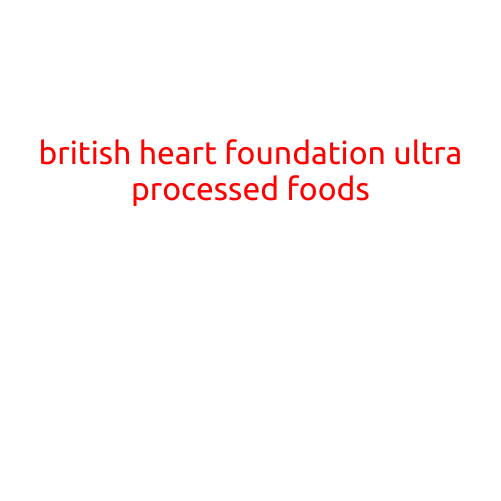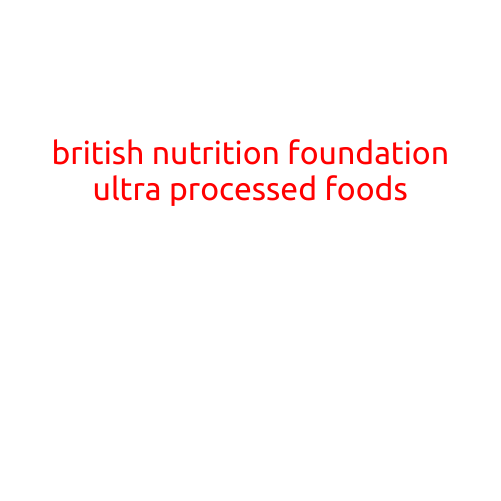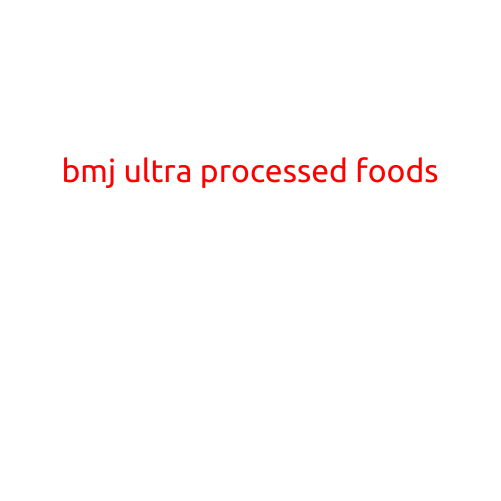
British Heart Foundation Warns of Dangers of Ultra-Processed Foods
The British Heart Foundation (BHF) has sounded the alarm on the rising concern of ultra-processed foods in the British diet. In a comprehensive report, the charity highlights the alarming link between the consumption of these foods and an increased risk of heart disease, stroke, and premature death.
What are Ultra-Processed Foods?
Ultra-processed foods are products that have undergone significant processing, resulting in the removal or addition of many nutrients. They often contain additives, such as preservatives, colorants, and flavor enhancers, and are designed to be cheap, convenient, and have a long shelf life. Examples of ultra-processed foods include:
- Packaged snacks, such as crisps, popcorn, and cookies
- Sugary drinks, like energy drinks and sports drinks
- Frozen meals, such as pizza, burgers, and macaroni and cheese
- Processed meats, like sausages, bacon, and ham
- Ready-to-eat cereals
The BHF’s Report: A Wake-Up Call
The BHF’s report, “Ultra-Processed Foods: A Warning to the Nation,” analyzed data from over 100,000 participants in the UK Biobank study. The findings revealed that:
- Consuming high amounts of ultra-processed foods increased the risk of heart disease, stroke, and death from any cause
- The risk increased by up to 50% for every additional 5% increase in ultra-processed food consumption
- The consumption of ultra-processed foods was associated with lower intakes of essential nutrients, such as fiber, vitamins, and minerals
- The BHF estimates that the consumption of ultra-processed foods could lead to an additional 2,000-3,000 deaths from heart disease and stroke in the UK each year
The BHF’s Recommendations
To combat the growing problem of ultra-processed foods, the BHF is urging individuals to take control of their dietary choices by:
- Reducing the consumption of ultra-processed foods and opting for whole, unprocessed foods instead
- Reading food labels and avoiding products with long lists of additives and preservatives
- Cooking from scratch using fresh ingredients and simple recipes
- Avoiding sugary drinks and opting for water or low-fat milk
The BHF is also calling on manufacturers and policymakers to take action by:
- Improving food labeling to better inform consumers about the level of processing in their food
- Promoting the production and sale of healthier, whole-food alternatives
- Implementing taxes on sugary drinks and ultra-processed foods to discourage consumption
The Bottom Line
The British Heart Foundation’s report is a stark reminder of the importance of making informed, healthy food choices. By reducing our consumption of ultra-processed foods and opting for whole, nutritious foods instead, we can significantly reduce the risk of heart disease, stroke, and premature death.





